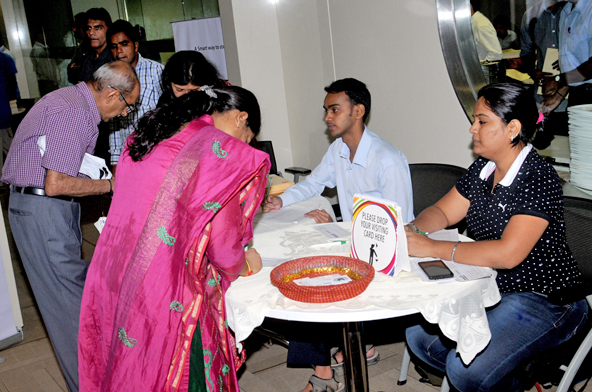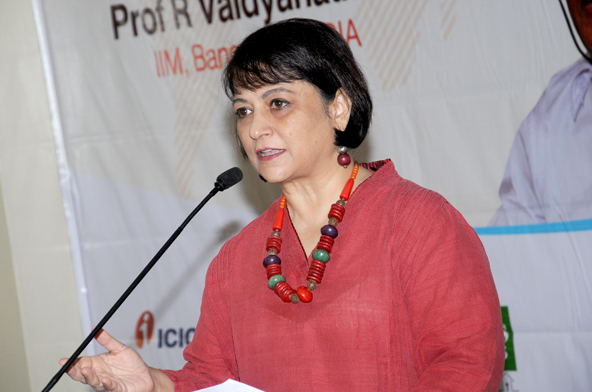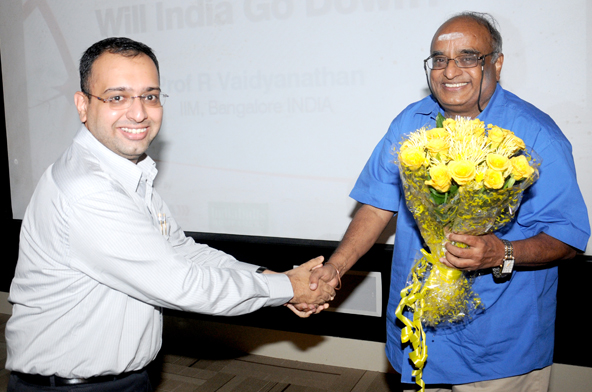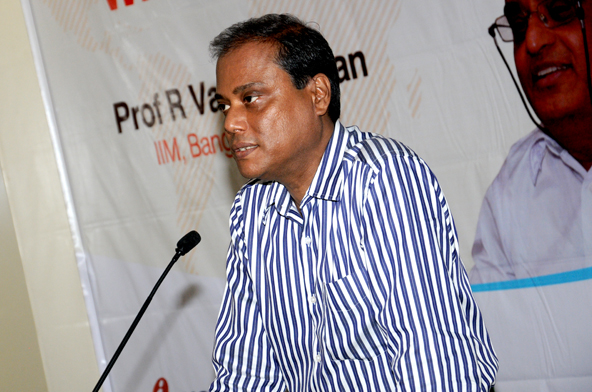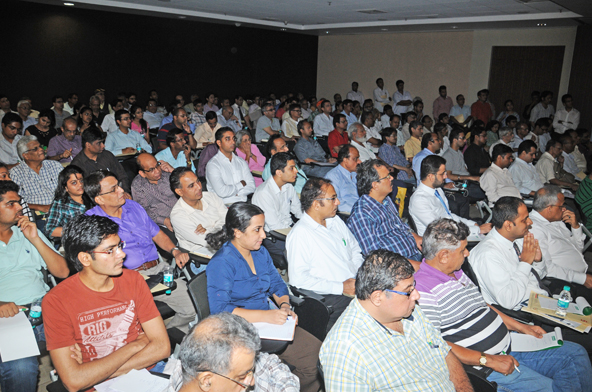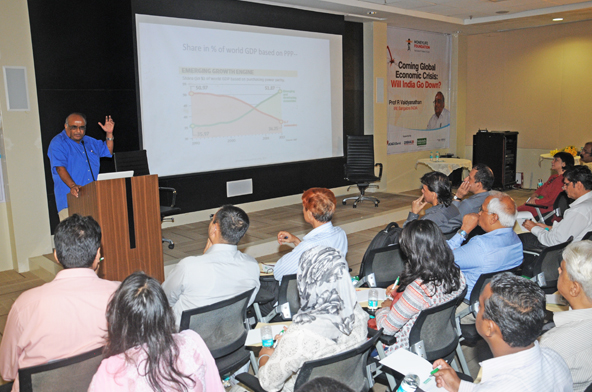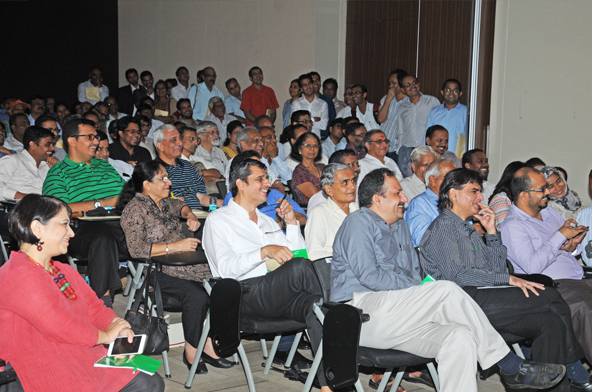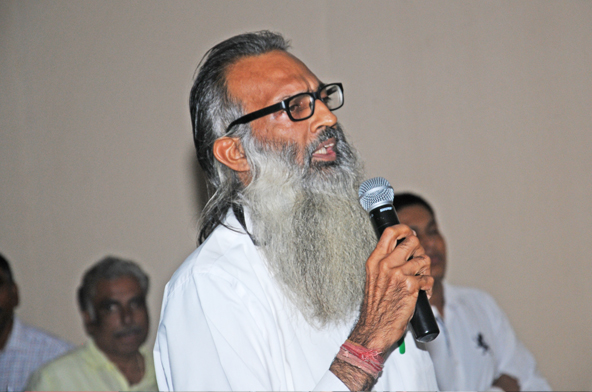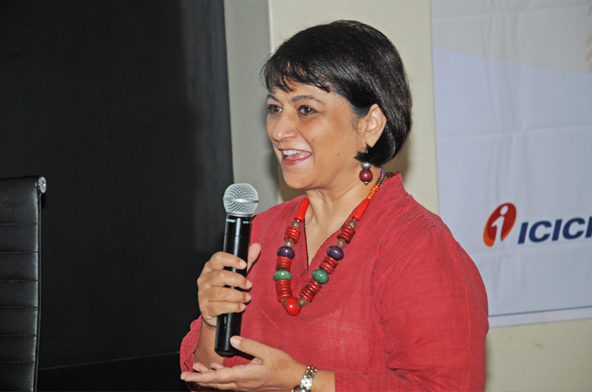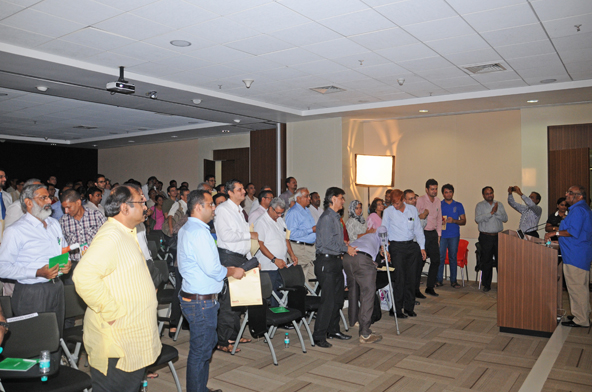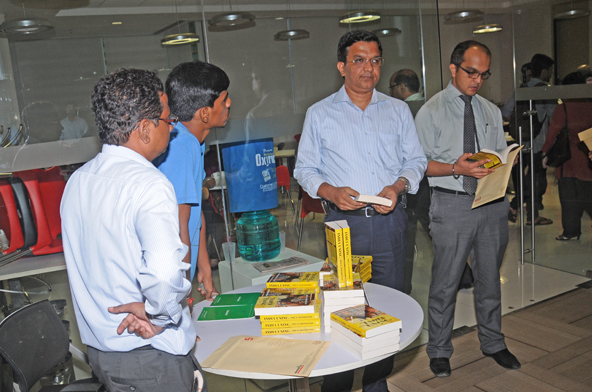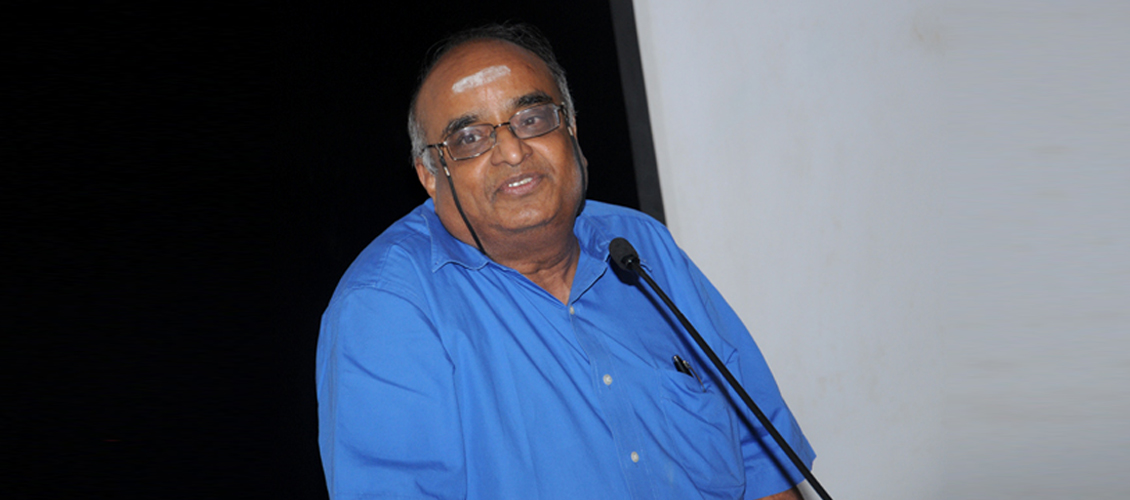
“India story is just starting and we need to look at every pothole as an opportunity, says Dr R Vaidyanathan, Professor of Finance, IIM-Bangalore and Dean, Centre of Economic Studies at Vivekananda International Foundation (VIF). He was speaking on “Coming Global Economic Crisis: Will India Go Down?” at a seminar organised by Moneylife Foundation in Mumbai.
Addressing a packed hall, Prof Vaidyanathan, rated one of the most popular teachers among all IIMs, brought alive a host of complex economic issues by punctuating his talk with innumerable asides which had the audience in splits. He said, “With global economic power increasingly shifting to the east, India is well poised to emerge as the most favoured destination of private equity and overseas pension funds. For this to happen, we need reforms, not in share market, retrospective taxes or taxes on foreign institutional investment (FII), but at state level taxes, in providing more credit to unorganised sector. Education should be more focussed on trade-based needs and skills. We also need to leverage on caste as social capital. Last, but not the least, we need to close down duplications in central ministries, like education, agriculture and information and broadcasting and have not more than eight to 10 ministries at central level.”
Busting several myths about Indian economy, the ‘teacher who is interested in learning’ said growth of our economy is domestic demand driven and powered by domestic household savings and not due to FII or foreign direct investment (FDI) inflows. “Non-corporate sectors, which are community oriented and family driven, are the engines of growth in India. However, blind adoption of foreign methodology and definitions has led to the government ignoring the real engine of growth, which is the unincorporated sector. Consequently, this sector survives, despite lack of access to formal funding, extortion and harassment from multiple government agencies as well as the police and without access to any form of social security. Yet, they toil and put away retirement funds, giving India’s economy the security of a high savings rate,” Prof Vaidyanathan added.
Talking about the Greek crisis, Prof Vaidyanathan, an expert on the Indian model of economics, said, “The European countries are calling their economic problems as global crisis since past several decades. At the most, we can call Greek crisis as Anglo-Saxon Crisis. The current crisis will take more than 80 quarters for recovery of the West. In this scenario, it is better for India to be more de-coupled.”
“Crisis occurs when borrowing goes beyond a point. In European countries, people are not worried about savings. They care only for consumption. This reflects in their pathetic domestic household saving and higher debt percentage to gross domestic product (GDP) ratio. Overall debt percentage to GDP in Spain, France and Italy is over 300%, while for Britain, it is around 500%. While Japan tops the chart at 511%, the same for US and China is 289% and 184%, respectively. India’s overall debt percentage to GDP is 122%.”
“When we talk about household debt percentage to GDP, Britain and Canada top the chart with over 90%, followed by US, South Korea and Spain at over 80%. Only three countries, India, Russia and Brazil have household debt percentage to GDP of less than 15%,” Prof Vaidyanathan added.
Explaining the Greek tragedy, he said, the country has to pay $8.5 billion to European commercial bank by August and it has total debt of $352 billion with a national income of $242 billion last year. Greece’s debt is slowly reaching 200%. The Professor of Finance at IIM-Bangalore, said, “Greece has significant structural problems of Government playing the role of father and mother. The government’s 75% spending is on pension and wages. Since cutting pension can hit old age and poor segments, it is not feasible. Add to this the number of employed younger population (age group 16-24), which is nearly 50% with an overall unemployment rate of 25% in Greece mainly due to lack of skillset.”
“The same problem exists in a large number of European countries. In most of Europe, families have been nationalised and this model may not work in the long run with longer life expectancy and single parent (single mother) families on the rise. For example, according to official figures, by 2016 most children in the UK will be born out of wedlock because of decline in marriages,” he added.
Prof Vaidyanathan also explained the recent crash in Chinese stock markets.
Busting the myth that corporate sector is major factor in our economy, Prof Vaidyanathan said, the share of unincorporated or partnership and proprietorship firms in India is 50%. While agriculture contributes 17%, government and private corporate sector contribution is 19% and 14%, respectively. Therefore, the India Unincorporated (non-corporate sector) contributes more towards the economy and not corporate sector, which still occupies the maximum mindshare.
According to the professor, using share market as barometer of Indian economy is completely wrong. He said, “Out of about 8,000 shares listed, half of them were not even quoted last year. Just 200-250 scrips are regularly traded on bourses, while shares of only 10 companies constitute nearly 30% of trading. Out of this nearly 50% to 60% are day trading. In addition, the share of all listed companies is just 5%-6% of the national domestic product (NDP). Therefore, it is wrong to assume the stock market as the real barometer of India’s economy.”
Same goes in services sector as well. Most of us assume that biggest contributor in services sector is ITES, however, it contributes just 5% to 6%. At the same time, the share of construction, wholesale and retail trading, transport, hotels, restaurants, realty dwellings and business services have larger share in services sector.
Prof Vaidyanathan also explained that it is the incredible savings rate of Indian households, which is another engine that drives the Indian economy by supplying the capital businesses need. He said India’s gross domestic savings (GDS) to GDP is about 32% to 35%. Out of this, government’s share is just 1% to 2%, while private corporate’s contribution is just 7% to 8%. However, household savings have 23% to 25% share in the total GDS, which in percentage terms comes to over 75%. Homemakers are the primary reason for our economic growth. “India ought to put up statues of the anonymous ‘Indian Woman’ whose natural thrift and savings habits have contributed hugely to the growth of the Indian economy,” he added.
There is a myth that government and corporate sector provide employment to maximum number of people. However, this again is wrong, Prof Vaidyanathan said. “In India, 85% people are either self-employed or work as contract labour, while just 12% to 15% have government or corporate jobs. In the US, over 90% people are employed in government or corporate sector, while merely 6% to 8% are self-employed,” he added.
Prof Vaidyanathan’s talk on economy covered a broad range of issues – the nature of domestic economy, the role of foreign funding, structure of domestic savings, role of gold, the need to fund non-corporate sector, market access and political linkages, among other issues.
India must evolve its own strategy, which protects its interest, Prof Vaidyanathan said, adding we also need to focus on tax heavens in search of the lost and last dollar. It is estimated nearly $18 trillion is in tax heavens the G-20 is trying to regulate or get back this money. Indian money in tax heavens is estimated to be between $500 billion to $1.5 trillion.
In the long run, funds – particularly, pension funds that are worth about $18 trillion, have to come to India and it should be on our terms, Prof Vaidyanathan concluded.


